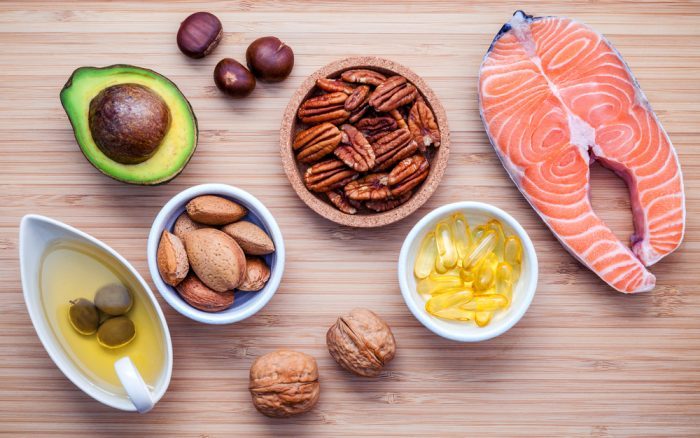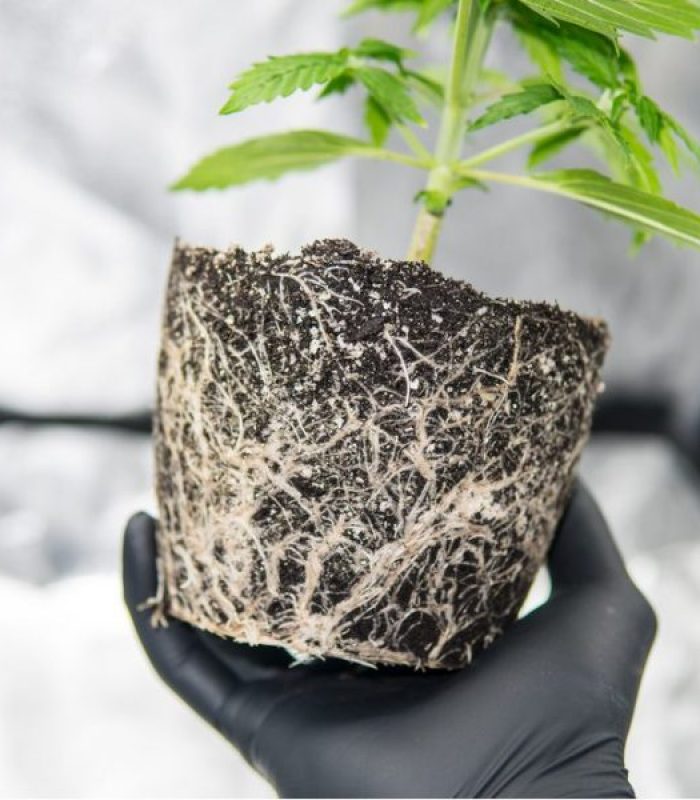Combine cannabis with foods rich in Omega 3 6 9 and get a massive anti-inflammatory boost.
Could a combination of cannabidiol (CBD) and omega 3, 6, and 9 (omega 3 6 9) essential fatty acids be the thing that dramatically reduces inflammation? If new research out of the University of Illinois holds up, we may be combining our supplements with cannabis for added benefit. According to Aditi Das, a professor at the School of Molecular & Cellular Biology (University of Illinois), omega 3 6 9 fatty acids play a crucial role in the production of endocannabinoids within the body.
Das theorizes omega 3 6 9 may also help process cannabinoids from external sources – like the plant. Since we all already know the power of a diet rich in omegas 3 6 9, this is yet another argument for boosting our intake of healthy fatty acids.

Understanding Basic Biology of Omegas 3 6 9
There are three types of fatty acids we need to survive: omega 3, omega 6, and omega 9. There are polyunsaturated (3 and 6) and monounsaturated (9) versions. Some fatty acids we produce internally, meaning they are nonessential in our diet. Others we must source entirely from our foods, which means they are essential.
Although fatty acids play a wide-ranging role in human biology, let’s focus here on their work within the endocannabinoid system. When we consume omega 3 and 6, our bodies rapidly get to work converting these into a series of other compounds. These compounds, called endocannabinoids, help our bodies maintain a well-balanced internal environment or homeostasis.
These internally-made endocannabinoids bind to cannabinoid receptors that are spread throughout a vast network in our bodies. There are two receptors worth noting: CB1 and CB2. Researchers have found these are in low concentrations all over the human body, but the central nervous system and brain contains a high concentration of CB1 receptors. CB2 is most concentrated in immune cells.
So, omega 3 fatty acids and omega 6 fatty acids transform into endocannabinoids, which then get to work in our endocannabinoid system. Endocannabinoids keep our bodies well-balanced and stress-free. Researchers are just now discovering the individual roles each endocannabinoid plays, but one of the most understood thus far is the capacity to control inflammation.

New Discovery Links Fatty Acids and CBD
The study published out of the University of Illinois is an exciting milestone for inflammatory research. The team of researchers discovered a link between omega-3 fatty acids and CB2 receptors in our immune system.
Das explained: “Our team discovered an enzymatic pathway that converts omega-3-derived endocannabinoids into more potent anti-inflammatory molecules that predominantly bind to the receptors found in the immune system. This finding demonstrates how omega-3 fatty acids can produce some of the same medicinal qualities as marijuana, but without a psychotropic effect.”
Cannabidiol, or CBD, also produces a strong anti-inflammatory effect without the high. Unlike THC compounds (which is anti-inflammatory but also intoxicating), CBD helps the body return to homeostasis and turn off an overactive immune response. All without any intoxicating effects.
Omega 3 and CBD apparently have a lot in common, and this link is worth more in-depth study. Could a diet rich in both omega 3 and CBD fight autoimmune disease? Could it help reduce chronic inflammation? What would happen if you were to add CBD into a daily fish oil supplement? There are so many questions about the omega 3-6-9 connection to cannabinoids that are still unanswered.
How to Pack More Omega 3 6 9 into Your Daily Diet
In a Western diet, some omega fatty acids are easier to come by than others. There are both essential and nonessential fatty acids – those we obtain strictly from a well-balanced diet and those that our body is capable of producing.
The key phrase here is “well-balanced”. Western diets sometimes have an issue with too many of one fatty acid and not enough of another. Strive for an omega 3 to omega 6 ratio of 1:4 (or less), which means avoiding junk foods, processed foods, and deep fried snacks.

Foods With Omega 3:
Omega 3 fatty acids are polyunsaturated, which have a double bonded structure. Our bodies do not produce these naturally. So, we must source all our omega 3 from dietary sources. A diet with the right amount of omega 3 is beneficial to bone health, heart health, and weight loss.
The best places to source healthy omega 3 fatty acids are from:
Oily fish (salmon, sardines, mackerel), chia seeds, and flaxseeds.
Foods With Omega 6:
This is another essential fatty acid, and another polyunsaturated one. Once metabolized, omega 6 tends to turn into pro-inflammatory compounds. A diet too high in omega 6 may increase the risk of inflammatory disease. This is the issue with junk foods!
Instead of sourcing all your omega 6 from unhealthy processed foods, look for omega 6 in the following healthy sources (consumed in moderation):
Soybeans, walnuts, sunflower, almonds, and walnuts.
Foods With Omega 9:
This question is a bit of a riddle. Omega 9 fatty acids are monounsaturated. Unlike omega 6 and 3, omega 9 is a non-essential fatty acid. Our bodies naturally produce enough for us to function. That said, we may all benefit from a dietary boost in omega 9. Research shows that by boosting our omega 9 fatty acid intake, we can reduce inflammation, improve insulin sensitivity, and improve metabolic health.

Boost your omega 9 intake by adding these foods into your diet:
Olive oil, cashews, avocado, almonds, and walnuts.
Sourcing healthy foods rich in omega 3-6-9 promotes a beneficial “cascade of chemical reactions” in our bodies. With the right balance, and omega 3, in particular, we can improve our body’s natural cannabinoid production and function.
Further research may also find that combining phytocannabinoids (from plants like cannabis) with omega 3 improves cannabinoid function as well. With a little more study, we could find that the anti-inflammatory characteristics of CBD and omega 3 fatty acids are a one-two-punch for fighting inflammatory diseases.


